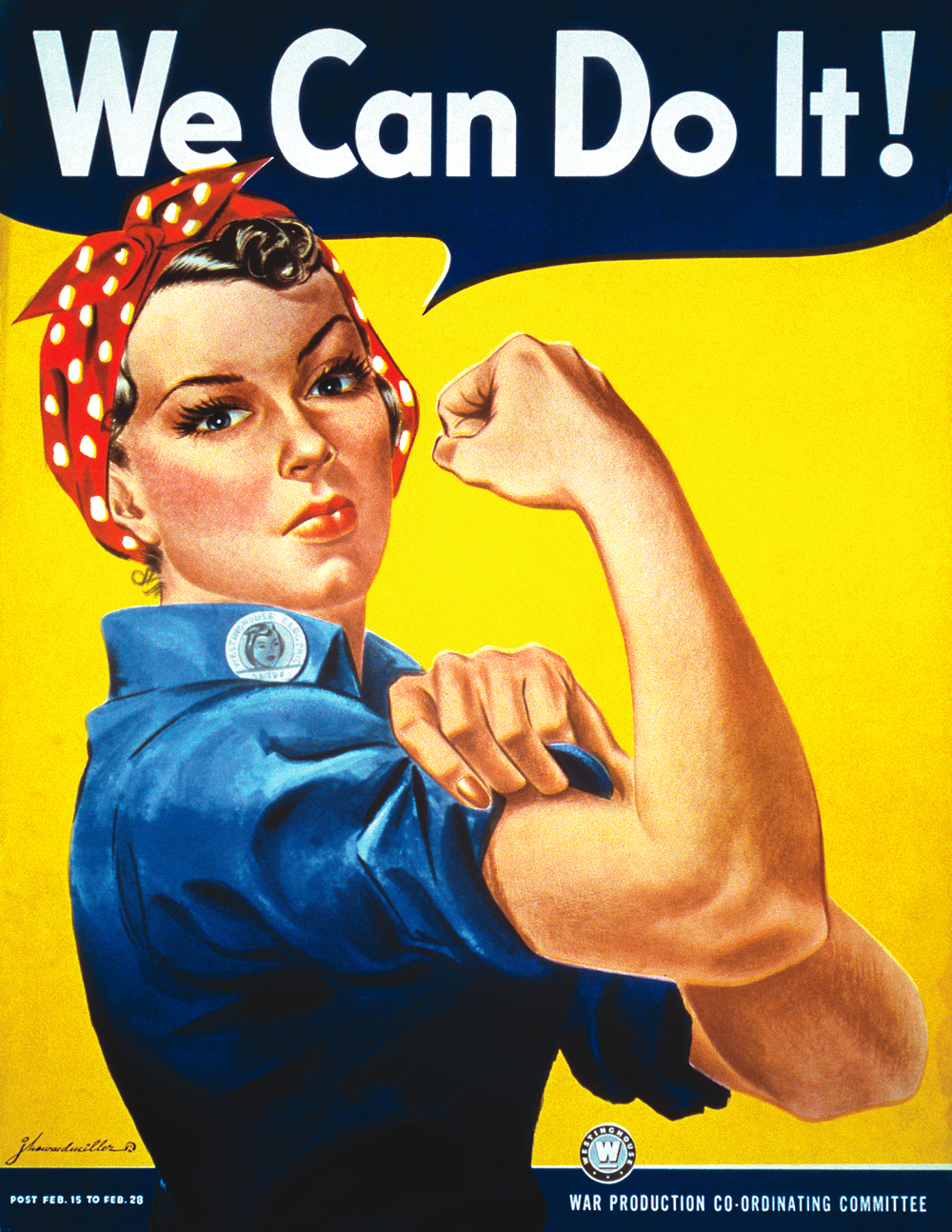When World War II’s famous “We Can Do It” poster went up 76 years ago Friday, barely anyone saw it.
In fact, the feminist emblem began as a poster for the walls of a Pittsburgh-based manufacturing company. It took about 40 years for it to enter the public consciousness.
When artist J. Howard Miller produced the “We Can Do It” poster for Westinghouse Electric Corporation, he didn’t intend for it to do more than inspire the women within the company’s walls. The poster was meant to boost morale for two weeks before being replaced by a new round of artwork. It wasn’t until the 1980s, during feminism’s second wave, that it was rediscovered.

The poster became known as “Rosie the Riveter,” though the name came from a 1942 song, later represented in a Saturday Evening Post cover by Norman Rockwell. Rockwell’s Rosie appears more masculine, almost indifferent, her head turned as she holds a sandwich and cradles a gun in her lap.
Miller’s Rosie, more feminine, more defiant, has become the image adored by generations. Today the poster is embedded in pop culture: It’s a tattoo, a Halloween costume, a poster at the Women’s March, a photo of Beyonce on Instagram.
Rosie’s evolution shows why she makes such a perfect feminist image. It doesn’t matter that the original poster was a patriotic piece of corporate encouragement. When she was rediscovered (a 1982 Washington Post article mentioned her among war propaganda posters) her image was universal enough to pick up a new cause. If “We Can Do It” once meant production during the war effort, now “it” could mean expanding women’s rights at home, at work, or in relationships.
As feminism has evolved from its first to fourth wave, the needs and demands of women have changed drastically. Previous generations united around common causes (such as suffrage, in first-wave feminism), but modern feminism, especially thanks to intersectionality, has become disjointed. The causes women unite around are varied, and every woman has a different definition of what feminism now means.
According to Rosie, “we can do it.” Every feminist can embrace that. But when it comes to defining what “it” is, today’s feminists disagree.

